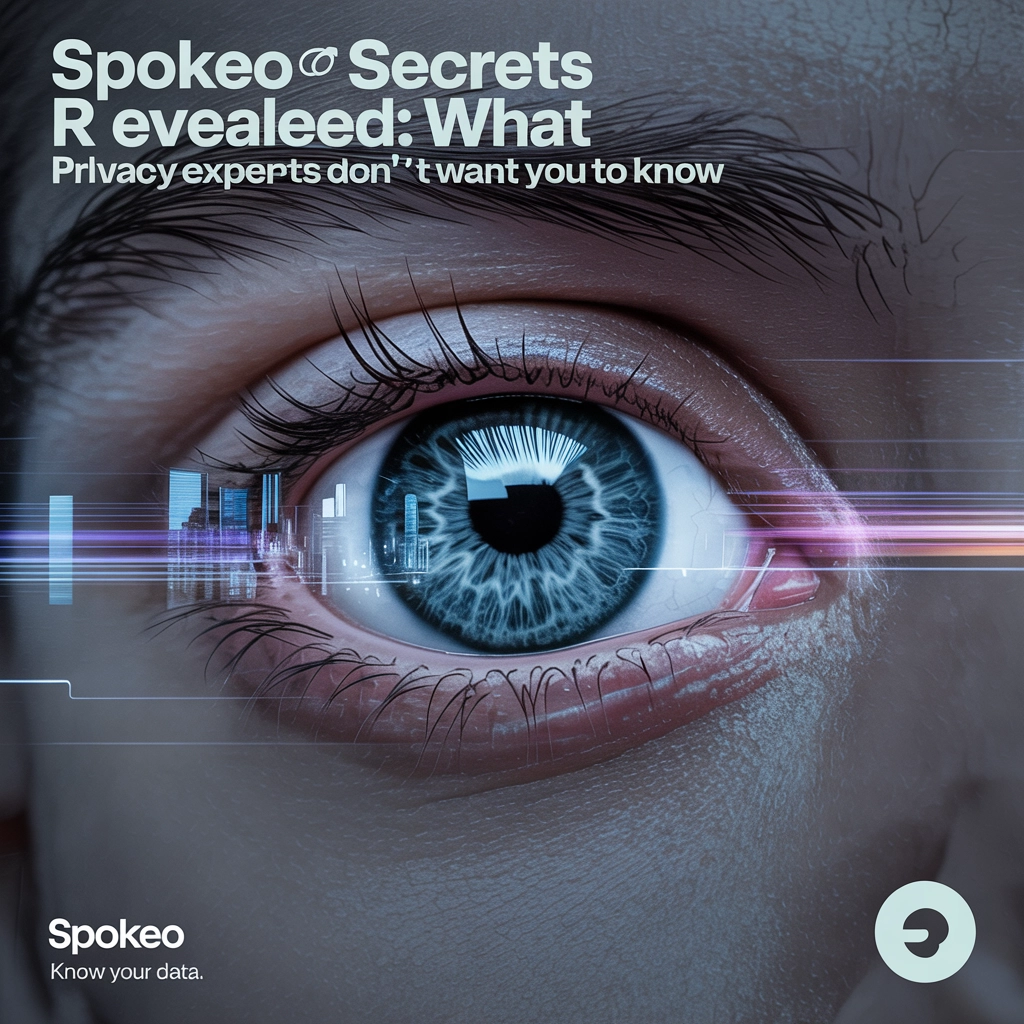Ever Googled yourself and felt that creepy chill when you saw how much personal info was just sitting there online? Well, buckle up – because there's probably way more out there than you think, and it's all thanks to sites like Spokeo.
Here's the thing: privacy experts aren't exactly hiding secrets about Spokeo. They're actually shouting from the rooftops about this stuff. The real "secret" is that most people just aren't listening. So let's dive into what Spokeo is really doing with your data, and why it should probably freak you out a little more than it does.
How Spokeo Actually Builds Your Digital Profile
Think Spokeo is just pulling info from phone books and public records? Think again. This platform is basically running a 24/7 digital surveillance operation on pretty much everyone.

Spokeo uses automated web crawlers that constantly scan the internet for new information about you. We're talking social media posts, online directories, marketing databases, government records, and even data from other companies that sell personal information. It's like having a team of digital detectives working around the clock to piece together your entire life story.
The scary part? They don't need your permission. While you're sleeping, their bots are out there connecting dots between your Facebook profile, your voter registration, that review you left on Yelp three years ago, and your property records. Before you know it, they've got a profile that knows more about you than your own family does.
My friend Sarah found this out the hard way when she was apartment hunting. A potential landlord mentioned details about her previous addresses and family members that she'd never shared. Turns out, he'd looked her up on Spokeo and learned more from a five-minute search than from her entire rental application.
The Opt-Out Illusion: Why Your Data Keeps Coming Back
Here's where things get really frustrating. Spokeo does offer an opt-out process – you can request to have your information removed. The problem? It's basically playing whack-a-mole with your own personal data.

You might successfully remove your profile today, but within weeks or months, it's likely to pop back up. Why? Because Spokeo's automated systems are constantly pulling fresh data from new sources. That new email address you signed up with, that recent address change, or even updated information from a data broker partner – it all feeds back into their system and rebuilds your profile.
Users report having to submit opt-out requests multiple times per year just to stay somewhat private. It's not that Spokeo is intentionally ignoring these requests (well, mostly). It's that their business model depends on constantly refreshing and expanding their database.
The opt-out process itself is also deliberately cumbersome. You have to:
• Navigate to their privacy page (which isn't exactly front and center)
• Search for and identify your specific profile among potentially dozens
• Verify your email address
• Wait 48-72 hours for processing
• Cross your fingers that it actually works
• Repeat this process every few months when your data inevitably returns
The Real Risks Nobody Talks About
Identity theft gets all the headlines when people discuss data broker risks, but that's just the tip of the iceberg. The real dangers of having your detailed personal information on Spokeo go way deeper.

Criminal Enhancement: Let's say someone already has your email address from a data breach. They can use Spokeo to instantly discover your family members, previous addresses, and other personal details commonly used for security questions. Suddenly, that email address becomes a key to unlock much more sensitive accounts.
Commercial Harassment: Cold-calling operations love Spokeo. The more they know about you – your estimated income, family situation, interests – the better they can tailor their pitch. That "coincidental" sales call about life insurance right after you got married? Probably not a coincidence.
Personal Safety Threats: For people trying to maintain privacy for safety reasons – maybe they're escaping an abusive relationship or dealing with stalking – Spokeo becomes a nightmare. It can reveal current addresses, workplace information, and family connections that someone worked hard to keep private.
Professional Consequences: Employers, landlords, and even potential dates are using these services to dig into your background. That party photo from college or that brief period when you lived in a less desirable neighborhood? It's all there, creating impressions before you even get a chance to make your own.
The Data Broker Ecosystem You Never Knew Existed
Here's what might blow your mind: Spokeo isn't working alone. There's an entire ecosystem of companies buying, selling, and sharing your personal information. Think of it like a giant marketplace where your data is the product being traded.

When you opt out of Spokeo, you're only addressing one piece of a much larger puzzle. Your information is likely scattered across dozens of similar platforms – BeenVerified, Whitepages, PeopleFinder, Intelius, and many others you've probably never heard of.
These companies often share data with each other, which explains why removing your information from one site doesn't solve the problem. It's like trying to clean up water by mopping just one corner of a flooded room while the faucet is still running.
Professional privacy services have identified over 200 active data broker sites that regularly trade personal information. Some focus on specific demographics, others specialize in particular types of data, and many fly completely under the radar of average consumers.
The really wild part? This entire industry operates mostly in the shadows, with minimal regulation and little public awareness. Most people have no idea their information is being packaged and sold to anyone willing to pay for it.
Taking Back Control (It's Harder Than You Think)
The good news is that you're not completely powerless. The bad news? Protecting your privacy from data brokers like Spokeo requires ongoing effort, not just a one-time fix.

Start by opting out of the major players – Spokeo, Whitepages, BeenVerified, and others. Set a calendar reminder to check these sites every few months and repeat the process as needed. It's annoying, but it's currently your best defense.
Consider using a service that handles data broker opt-outs for you. Companies like Incogni, DeleteMe, and Privacy Bee specialize in this tedious work and can save you significant time and frustration. They're not perfect, but they're way more efficient than trying to manage it yourself.
Be more mindful about what information you share online. Every social media post, online review, and digital transaction potentially feeds into these databases. You don't have to go completely offline, but a little more awareness can go a long way.
Most importantly, support privacy legislation in your area. The only real long-term solution to this problem is regulation that puts meaningful limits on how companies can collect, use, and share personal information.
So here's my question for you: knowing all this, are you going to keep pretending your digital privacy doesn't matter, or are you finally ready to do something about it?







